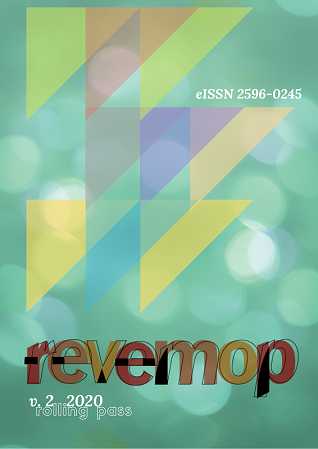The taking of Western/Euro Mathematics as reappropriation/repair
Abstract
Reorienting ethnomathematics away from reclaiming or celebrating epistemologies lost to colonialization, we propose the need to position local knowledges as the authorities that re appropriate Western Mathematical traditions in the service of local cultures and concerns. Drawing from several post-colonial novels in which a divided world and clash of traditions is at the center of character, plot, politics, and the human condition (Jhumpa Lahiri’s The Namesake, Nuruddin Farah’s North of Dawn) applying the work of Ligia (Lichio) Lopez, on the construction of indigeneity as a form of coloniality, we urge the application of a metaphor in order to understand and interpret mathematics education through the prism of ethnomathematics. Can one enjoy the privileges of western civilization and yet perceive resistance in this acculturation process as a positive action of affirmation? What are the corresponding costs for any choice? What about students — mostly out of mainstream — at school that very often are confronting a similar dilemma?
Downloads
References
ACHEBE, Chinua. Things fall apart. New York: Heinemann, 1958.
AHMED, Sara. Orientations: toward a queer phenomenology. GLQ: A journal of Lesbian and Gay Studies, v. 12, n. 4, p. 543-574, oct. 2006.
BENSON, Alan. Culturally Responsive Pedagogy: working towards decolonization, indigeneity and interculturalism (Review). London Review of Education, v. 17, n, 2, p. 236-238, jul. 2019.
BISHOP, Alan. Mathematical Enculturation: a cultural perspective on Mathematics Education. Dordrecht: D. Reidel Publishing Company, 1988.
CARDOSO, Dulce Maria. The Return. Translated by Ángel Gurría-Quintana. London : Quercus Books, 2016.
CÉSAIRE, Aimé. Discourse on Colonialism. Translated by Joan Pinkham. New York and London: Monthly Review Press, 1972.
FANON, Franz. Black skin, white masks. New York: Grove Press, 1967.
FANON, Franz. Wretched of the Earth. New York: Grove Press, 1961.
FARAH, Nuruddin. North of Dawn: a novel. London: Penguin, 2018.
GERDES, Paulus. Ethnomathematics as a new research field, illustrated by studies of mathematical ideas in African history. In: KJELDSEN, Tinne Hoff; PEDERSEN, Stig Andur; SONNE-HANSEN, Lise Mariane. (Ed.). New trends in the History and Philosophy of Mathematics. Odence: University Press of Southern Denmark, 2004, p. 135-161.
GERDES, Paulus. Reflections on ethnomathematics. For the Learning of Mathematics, v, 14, n, 2: p. 19-22, jun. 1994.
GHAZI, Syed A. V.S. Naipaul, postcolonial orientalism and Islam. Toledo: University of Toledo, 1998.
HACKING, Ian. Kinds of people: moving targets. London: The British Academy, 2006.
KHAN, Steven K. Ethnomathematics as mythopoetic curriculum. For the Learning of Mathematics, v. 31, n. 3, p. 14-18, nov. 2011.
KYRIAKOPOULOS, Giorgos, Exploiting the six mathematical activities for responding to a real community’s problem with young Roma children. INTERNATIONAL COMMISSION FOR THE STUDY AND IMPROVEMENT OF MATHEMATICS EDUCATION, 2019, Braga. Proceedings CIEAEM 71: Connections and understanding in mathematics education: Making sense of a complex world. Braga: Universidade do Minho, 2019.
LAHIRI, Jhumpa. The namesake: a novel. Boston: Houghton-Mifflin, 2004.
LÓPEZ, Ligia López. Refusing making. Journal of Curriculum and Pedagogy, v. 16, n. 2, p. 161-174, 2019.
LÓPEZ, Ligia López. The making of indigeneity, curriculum history, and the limits of diversity. New York: Routledge, 2017.
LORDE, Audre. Sister outsider: essays and speeches. New York: Crossing Press, 1984.
QUIJANO, Aníbal. Coloniality of power and Eurocentrism in Latin America. International Sociolog, v. 15, n, 2, p. 215-232, 2000.
SANTOS, Boaventura de Sousa. Between Prospero and Caliban: colonialism, postcolonialism, and inter-identity. Luso-Brazilian Review, v. 39, n. 2, p. 9-43, 2002.
SANTOS, Boaventura de Sousa. Beyond abyssal thinking: from global lines to ecologies of knowledges. Review, v. 30, n. 1, p. 45-89, 2007.
STATHOPOULOU, Charoula. Ethnomathematics: exploring the cultural dimension of Mathematics and of Mathematics Education. Athens: Atrapos, 2005.
STATHOPOULOU, Charoula. Once Upon a Time... The Gypsy Boy Turned 15 While Still in the First Grade. In: ROSA, Milton; SHIRLEY, Lawrence; GAVARRETE, Maria Elena; ALANGUI, Wilfredo V. (Ed.), Ethnomathematics and its diverse approaches for Mathematics Education. Cham, Switzerland: Springer, 2017, p. 97-123.
TALLBEAR, Kim. Widening the lens on a more inclusive science. Science Friday, v. 9, n. 6, 2019b. NPR (National Public Radio).
TALLBEAR, Kim. Caretaking relations, not American dreaming. Kalfou: a Journal of Comparative and Relational Ethnic Studies, v. 16, n. 1, p. 24-41, 2019a.
TUCK, Eve; YANG, Wayne. R-words: Refusing research. In: PARIS, Django; WINN, Maisha T. (Ed.). Humanizing research: decolonizing qualitative inquiry with youth and communities. Washington: SAGE Publications, 2014, p. 223-248.






























